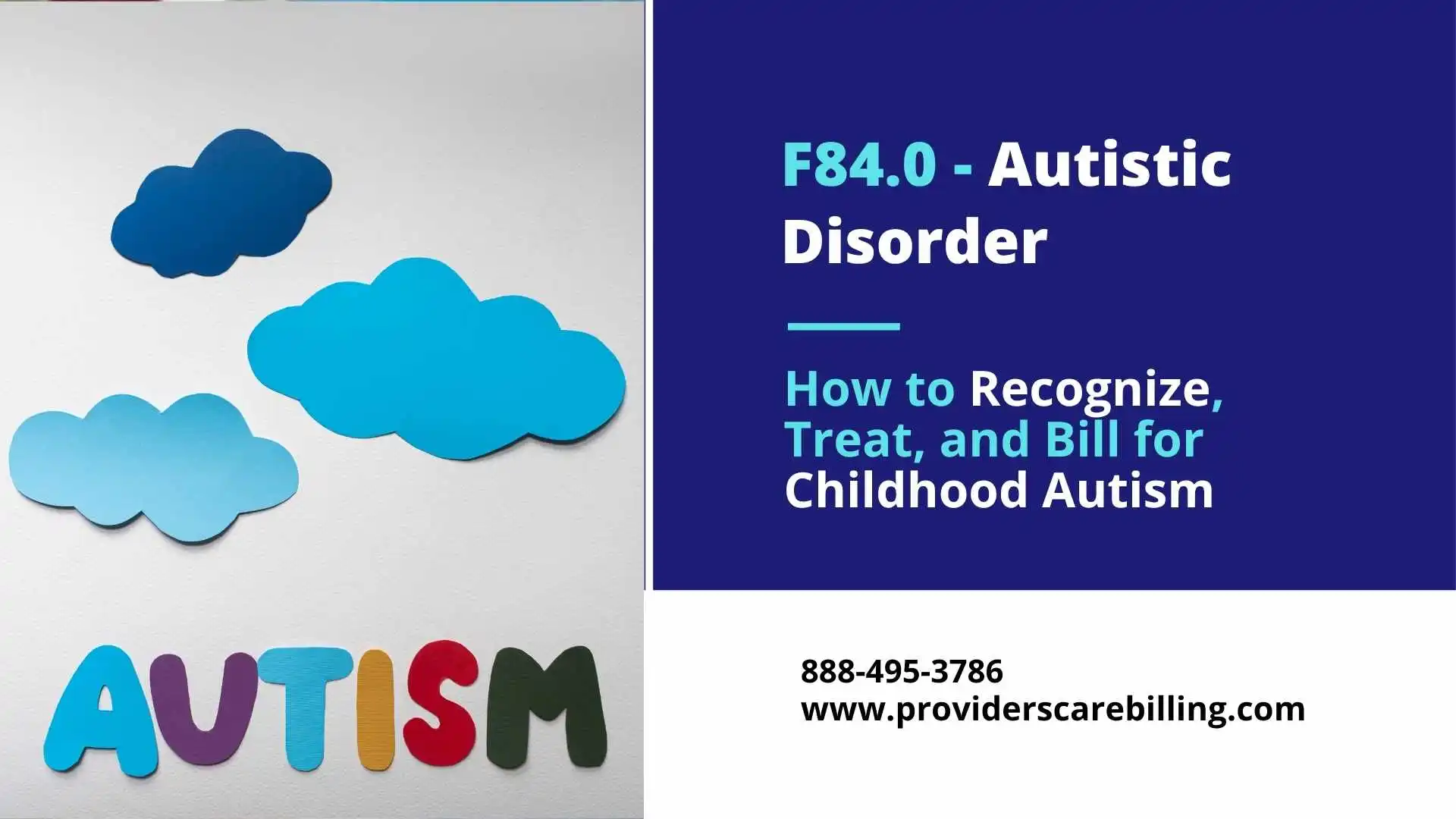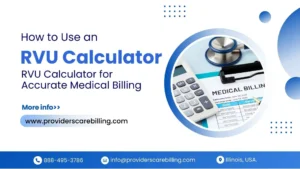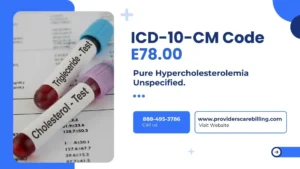The CDC reports that 1 in every 36 children has Autism Spectrum Disorder (ASD). F84.0 in the ICD-10 code means classic autism. It includes early signs such as poor social skills, trouble speaking, and repetitive actions. Doctors use this code to plan more effective care and ensure accurate billing and payments.
At Providers Care Billing LLC, we help doctors and child specialists learn how to code autism services accurately. It allows them to receive proper compensation and provides better care to their patients.
In this post, we’ll attempt to unravel 22 NAMES and what the F84.0 is, how to identify signs in young patients, how to treat the condition effectively, and how to properly bill for services using codes such as F84.0 diagnosis code, developmental delay ICD 10, aggressive behavior ICD 10, and others.
What Does F84.0 – Autistic Disorder Mean?
The diagnostic code F84.0 (alternatively listed as f 84.0, f84 0 or dx code f84.0) is applied for the case of classic autism in a child. This disorder is typically evident under 3 years of age and characterized by three primary types of symptoms:
- Problems with social communication
- Late to talk or develop language
- Low interest or the same behavior
Children affected with F84.0 usually fail to make eye contact with others and dislike changes. Some repeat words, flap their hands, or focus too much on certain things or topics.
This code helps doctors realize that the kid in question has Autistic Disorder and to develop treatment plans for the child and to bill insurance in a way that acknowledges the child’s special needs.
Discover F84: How To Spot The Symptoms 0 in Children?
The earlier autism is identified, the better the outcomes are likely to be for those who receive therapy. It’s up to parents, teachers, and doctors to watch for early warning signs.
Here are a few red flags that can help point the way to an F84.0 diagnosis code:
- Little or no eye contact
- Not responding to their name
- Speech late or not at all
- Stereotypies, for example, rocking items, spinning objects
- Reliance on the familiar or the typical
- They do not participate in social games
Autism signs often show up in early childhood. Doctors use tools like ADOS or CARS to help confirm it. If a child exhibits issues in speaking, behavior, or social skills before the age of 3, doctors may use the F84.0 ICD-10 code for diagnosis.
Early behavioral assessments play a vital role in diagnosing autism—learn how to bill correctly with our guide on CPT code 96156 for initial health behavior assessments.
Associated Conditions and Symptoms: DD and Aggression
Most autistic children are even developmentally delayed. In such cases, physicians frequently add the ICD-10 code for developmental delay or developmental delay ICD-10 when billing the autism diagnosis.
It may involve:
- Late walking or crawling
- Trouble learning new words
- Problem in understanding
Kids can act out when upset or scared; you may experience them hitting, screaming, or biting. Doctors used special codes to present that behavior. Your child may have sensory issues if they respond negatively to touch, light, or sound.
Diagnosis: What to Include, Doctors Making the Diagnosis?
When using the DX code F84. 0, providers will need a directive similar to the following:
- Age at Onset of first symptoms (must be before age 3)
- What type of language disorders are seen in the child
- How social behavior is affected
- Nothing – no repetitive behaviors or restricted interests
- Standardized testing results from assessments such as ADOS or M-CHAT
- Other therapies that participants had received, such as speech or occupational therapy
By adding these specifics, providers can help to substantiate the healthcare requirements of continued care and prevent insurance issues down the road.
What Therapy for Children With F84.0?
After confirming the problem, doctors initiate the treatment. Austin has no cure; however, early treatment can help significantly. Many common treatments are covered if F84.0 is coded correctly.
- Speech and Language Therapy: This helps children who have difficulty speaking or understanding language. Therapists help you gradually work on your communication skills.
- Occupational Therapy: This type of therapy can help develop essential skills. These are most commonly included in brushing your teeth and improving fine motor skills. It is also suitable for kids with sensory issues.
- Applied Behavior Analysis (ABA): ABA therapy is used as the most scientifically proven treatment for autism. It trains with positive reinforcement for behavioral changes and problem actions.
- Social Skills Training: (A group setting, and sometimes one-on-one, that teaches kids how to relate to one another healthily and productively.)
- Family Counseling and Parent Training: It helps parents to support their children after understanding their individual needs. All of these treatments should have proper documentation and coding, including ICD-10-CM code F84. ICD-10 or behavioral phenotypes and aggressive ICD-10 when indicated.
Billing Correctly with F84. 0 and Related Codes
Medical billing gets easier with the correct codes. Using only F84.0 might miss details. Doctors often add other related diagnoses or CPT codes to the initial diagnosis. These additional codes help clarify the complete treatment. This way, the bill aligns with the care provided.
Here’s an idea of what appropriate billing could be:
Diagnosis Codes:
- F84.0 – Autistic Disorder
- If applicable, the ICD-10 code for developmental delay is present
- ICD-10 code for aggressive behavior- only if appropriate
Common CPT Codes:
- 90791 – Psychiatric diagnostic evaluation (initial eval only)
- 96112 – Developmental testing
- 96136/96137 – Psychological or Neuropsychological Test
- 97151–97158- ABA therapy and assessments
Providers can also use Z-codes (e.g., Z55.9 for educational issues) if indicated to demonstrate environmental variables that may affect care. Secondary codes, such as aggressive behavior (ICD-10) or developmental delay (ICD-10), can be added to help fill in the picture of the child’s needs and improve the chances of being fully reimbursed.
Other ICD-10 Autism-Related Codes to Keep in Mind
Not all autism diagnoses are created equal. Here’s a breakdown of some of these similar ICD-10 codes for clarity:
| Code | Diagnosis | When to Use |
| F84.0 | Autistic Disorder | Early-onset autism with all three core issues |
| F84.5 | Asperger’s Syndrome | No language delay, but social difficulties |
| F84.9 | Pervasive Developmental Disorder NOS | Symptoms present but not meeting full criteria |
You may be asking: Why is getting the coding right such a big deal?
- It helps insurance companies approve ongoing treatment.
- It stops coverage from being denied or delayed.
- It supports the child in getting special education, IEPs, and therapy.
- Therapists and doctors get paid fairly for their work.
- Using the DX code F84.0 correctly ensures the child receives complete care.
- It also helps providers continue to provide care without financial problems.
Conclusion
Childhood autism, in particular classic autism, is categorized as F84.0, which is challenging, although it can be solved with the help of appropriate tools. Spotting symptoms early helps a lot. Selecting the proper treatment can improve things more quickly. A correct code in your billings helps to prevent delays. It enables parents, doctors, and patients to determine the next course of action.
It is essential to follow the assessment plan for each kid. Write everything down the right way. Use the correct codes for every detail. After that, doctors can provide better care, which prevents billing payment issues and maintains accuracy.
Need to Bill for Autism Services?
Providers Care Billing, LLC specializes in providing pediatricians and mental health providers with accurate coding, documentation, and billing for autism services.
No matter what condition your child is in, we are with you. Our supporting team will assist you at every step. Reach out to us today. Let us handle your autism billing, so you can focus on what truly matters – your child’s progress.





